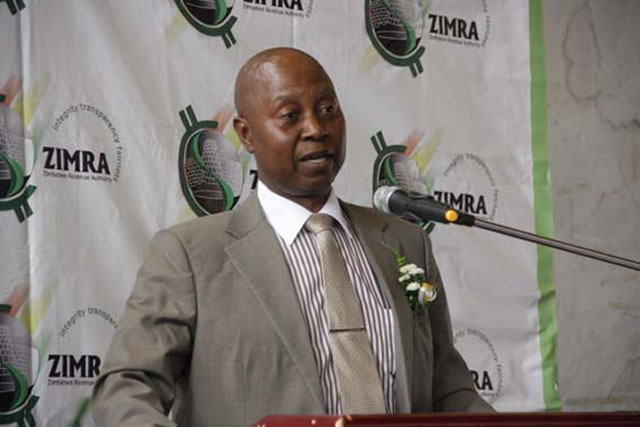


GOVERNMENT has resolved to stop the country’s tax agency, the Zimbabwe Revenue Authority (ZIMRA), from garnishing bank accounts of defaulting companies and institutions in order to mitigate the haemorrhage being endured by local firms as a result of a worsening economic climate. Impeccable government sources told the Financial Gazette this week that it was agreed after extensive discussions in one of the recent Cabinet meetings that ZIMRA should suspend forthwith the issuance of garnishee orders after taking into consideration the impact they were having on the affected companies.
Government wants the tax authorities to explore other mechanisms of enforcing compliance that will still achieve ZIMRA’s stated objective of raising revenue for the fiscus without necessarily condemning the affected companies to the corporate grave yard. ZIMRA spokesperson, Taungana Ndoro declined to comment when contacted on the issue, insisting on written questions which were sent to him. He had, however, not responded by the time of going to press.
Finance Minister, Patrick Chinamasa could not be reached for comment but the permanent secretary in the ministry, Willard Manungo, promised to get back to this reporter with a response which he could not do by the time of going to print. This development comes after the tax authority, desperate to increase collections in the face of a worsening liquidity crisis, had embarked on a tax blitz throughout the country, ransacking several entities’ bank accounts.
The raids were seen as hopeless attempts to raise funds for the cash-strapped government whose coffers continue to dwindle. The liquidity crunch which has seen many companies shut down or retrenching has also chocked government which gets its finances mainly from taxes. Treasury has since the beginning of the year struggled to pay civil servants and fund other national programmes.
ZIMRA’s commissioner-general, Gershem Pasi, recently revealed that the tax collector had been garnishing defaulting companies and would garnish bank accounts of State-linked enterprises whose top management were manipulating records and using political influence to avoid paying taxes. “The garnishee orders yes, we use them but it’s the last resort,” said Pasi when he appeared before the Parliamentary Portfolio Committee on Foreign Affairs.
“We encourage dialogue, we want people to come and to be honest and declare their cash flow so they need to pay their duties and taxes and they should stick to those terms which would have been agreed on. Where there are problems we say come back and discuss with us. Normally we reserve garnishes for people who want to play ‘catch me if you can game’. We have people who believe that they have political connections. When called to the table they don’t want to come so we say really do your work with those garnishee orders and are done and authorised at commissioners’ level so that people don’t abuse the facility,” he said.
For the first quarter to March 31, 2014, ZIMRA, in spite of the shrinking economy, recorded net collections of US$834,6 million, representing a positive variance of two percent against a target of US$817,9 million. A significant drop in revenue is expected this year as the economy base continues to shrink with companies most likely to scale down operations due to the prevailing liquidity constraints. Value Added Tax was the major contributor to revenue weighing in with 25 percent of the total revenue. Individual taxes and excise duty were the other revenue heads among the major contributors.
Collections under individual tax amounted to US$193,3 million against a target of US$168 million, resulting in a positive variance of 15 percent. During the same period last year US$172,7 million was realised which translates to a 12 percent growth in revenue. Corporate income tax amounted to US$104,7 million against a target of US$88 million, resulting in a positive variance of 19 percent.
newsdesk@fingaz.co.zw